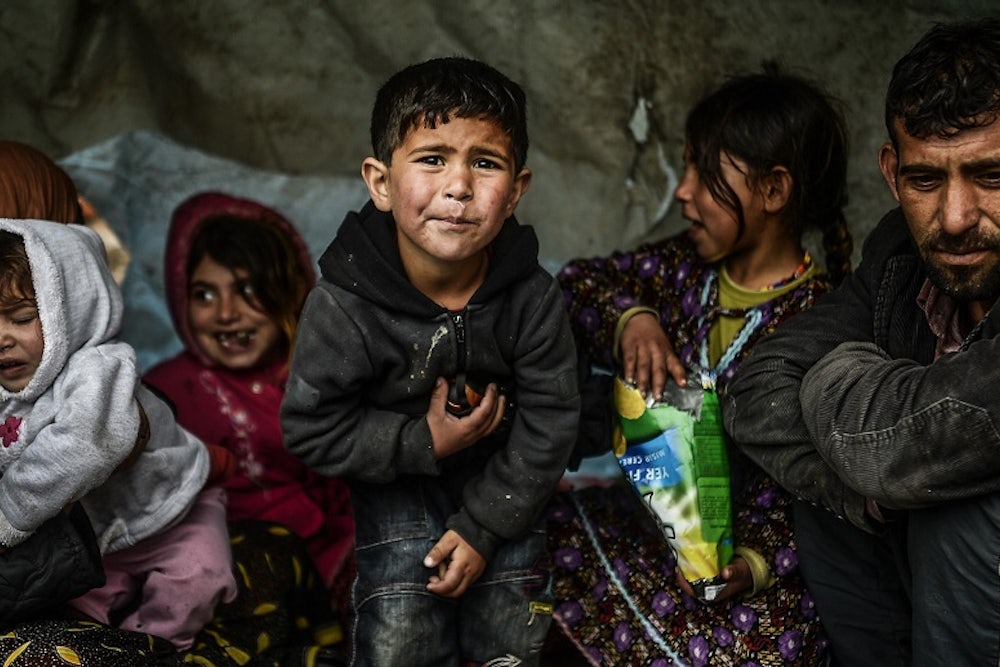This past summer, America faced a "border crisis." Thousands of unaccompanied children—mainly from Honduras, El Salvador and Guatemala—were illegally entering the country via Mexico, creating a backlog in the immigration court system. The numbers seemed astounding. More than 66,000 unaccompanied minors crossed the border in the first 11 months of the 2014 fiscal year, an 88 percent increase over the same period in 2013. The numbers peaked in June and have fallen rapidly in recent months, as has the public's interest in it.
The influx of immigrants was a genuine problem, but was it a crisis? Consider the number of Syrian refugees streaming across the border into Turkey.
One week ago, Ben Hubbard, of the New York Times, reported that 130,000 Syrian refugees had flooded into Turkey in just a few days. In the Times Monday, Karam Shoumali and Anne Bernard reported that another 150,000 refugees have crossed the border in the last week. That’s nearly 300,000 in the span of a few weeks.
While the cause of the influx in the U.S. was hotly debated—Republicans blamed Obama’s 2012 executive action on immigration, and Democrats blamed violence in Honduras, El Salvador and Guatemala—there's no doubt about why the Syrian refugees are fleeing home: They're scared of being killed, whether by Syrian President Bashar al-Assad’s forces, the Islamic State, or rebel groups.
Accepting hundreds of thousands of refugees would be an economic challenge even for the United States. For Turkey, it could be crippling. In recent days, the country has closed many of its border crossings to keep Syrian refugees out. Meanwhile, Turkey is also trying to keep Kurdish fighters in Turkey from going to opposite direction—entering Syria to fight the Islamic State.
The rise in unaccompanied minors in the U.S. deserved attention, and perhaps calling it a "crisis" helped in that regard. But some perspective is in order. More than twice as many refugees have crossed into Turkey in the past week as unaccompanied children entered the U.S. in the first 11 months of this fiscal year. Now that’s a border crisis.
